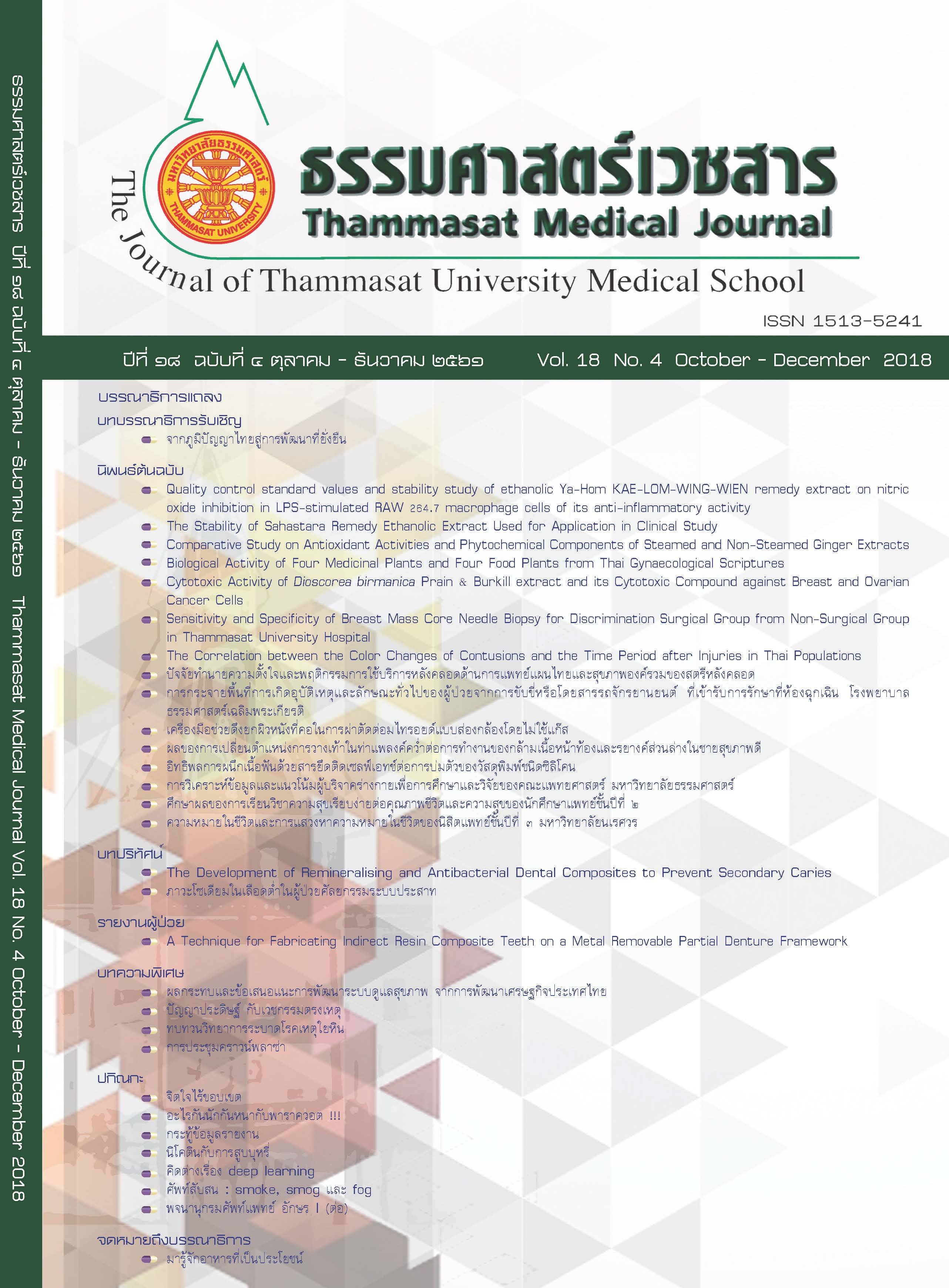The Effect of Simple Happiness Class on Quality of Life and Happiness in Sophomore Medical Students
Keywords:
Happiness, Quality of life, Medical student, Positive psychology, CoachingAbstract
Introduction: The life skill should be learnt coupled with the professional development for the medical education. This research aimed to investigate the quality of life (QoL) and happiness level of sophomore medical students before and after attending a Simple Happiness class.
Method: Retrospective study was performed. Their QoL and happiness level have been evaluated using brief World Health Organization Quality of Life indicators in Thai (WHOQOL - BREF - THAI) and a Thai happiness indicator (TMHI - 15) questionnaires, respectively. Analysis of the data involved both descriptive and inferential statistics. The findings were compared by paired sample T - Test and Wilcoxon Signed Ranks Test.
Results: One hundred seventy-one second-year medical students (98.84%) attending the Simple Happiness class were participated in this study including 92 females (53.80%) and 79 males (46.20%). The comparison analysis indicated significant improvements not only their average scores of overall QoL (before: 97.11 ± 10.11 at good level; after: 100.31 ± 9.94 at good level, t(170) = 5.512, p < 0.01) but also all of four domains including physical, psychological, psychosocial and environmental domains (p < 0.01). Similarly, average happiness scores were significantly increased after the class (before: 31.47 ± 4.44 at fair level; after: 32.73 ± 4.43 at good level, Z = -5.342, p < 0.01). Moreover, the amount of medical students who have a good level of QoL and happiness were increased to 86% and 51.5%, respectively.
Discussion and Conclusion: This study provided evidence to support those medical students perceived overall QoL, all QoL domains and happiness as better after class. The results suggest that the happiness and life skill class was also necessary for medicine education.



